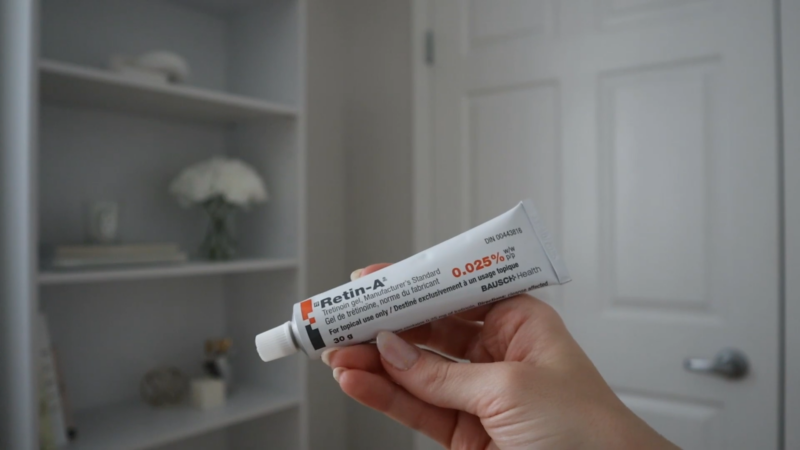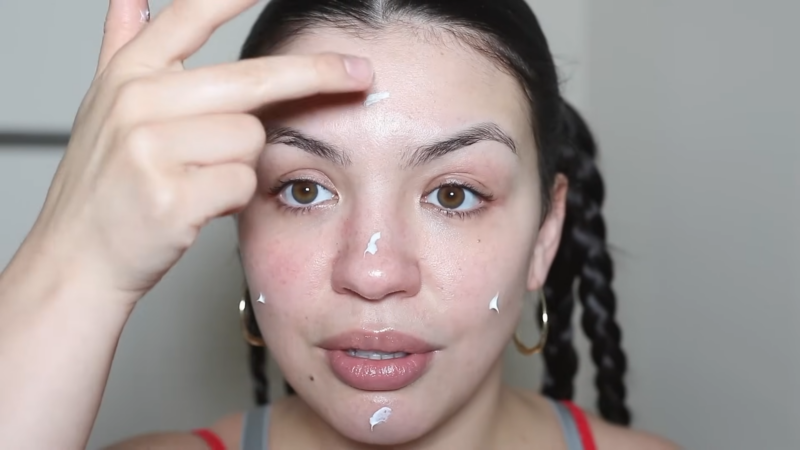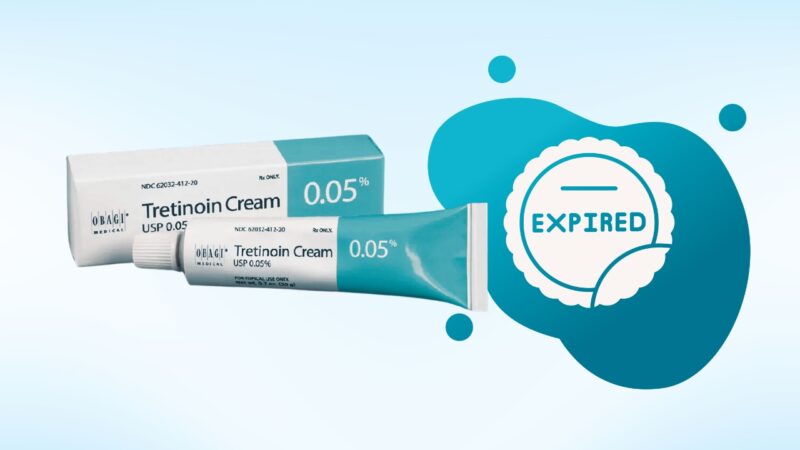Tretinoin, a popular topical medication widely used for various skin conditions, has an expiration date like many other products. Yes, tretinoin does expire, and its effectiveness diminishes past this date. Most tretinoin creams and gels have a shelf life ranging from 6 to 24 months once opened, while unopened products can last 2-3 years if stored properly.
Factors such as exposure to heat, light, and air can significantly reduce the lifespan of tretinoin. Proper storage in cool, dark places can help maintain its potency for a longer period. Understanding these elements can be crucial for making the most out of your tretinoin treatment.
Similarly, other skincare ingredients like lactic acid and retinol also have specific shelf lives and storage requirements to maintain their efficacy.
For those wondering if it’s safe to use expired tretinoin, it’s essential to raise the question of efficacy. Expired tretinoin may not deliver the desired results and could potentially irritate the skin. Knowing when and how tretinoin expires can safeguard your skin and ensure the best outcomes from your skincare routine.
Factors Contributing to Tretinoin Stability

- Storage Conditions: Proper storage is crucial for maintaining tretinoin stability. Storing it in a cool, dark place can significantly extend its usable life. Tretinoin stored at room temperature is usually effective until its expiration date. Storing it in higher temperatures or direct sunlight can degrade the active ingredient faster, making it less effective.
- Packaging Integrity: The original packaging is designed to protect tretinoin from exposure to air and light. Any breach in the packaging, such as a broken seal or missing cap, can accelerate the degradation process. Tubes or containers left open after use are more susceptible to contamination and reduced potency.
- Formulation Type: Different formulations of tretinoin (cream, gel, or solution) can have varying stability profiles. Cream formulations often have added stabilizers and may last longer compared to gels or solutions. However, once opened, creams might also degrade faster due to their higher water content.
- Expiration Date: The expiration date on tretinoin packaging indicates the period it is expected to remain effective when stored correctly. An unopened tube can often be used slightly past this date if it has been kept in optimal conditions. An opened tube typically remains effective for 6-12 months beyond the expiration date.
Changes in Drug Potency Over Time
Tretinoin’s efficacy diminishes gradually after the product is opened, especially if not stored under optimal conditions. The active ingredients start to break down, leading to reduced potency. An opened tube or bottle should ideally be used within a year to ensure effectiveness.
Stored appropriately, a sealed tretinoin product can last significantly longer. Creams and gels typically expire 2-3 years from the manufacturing date, while solutions last 18-24 months when unopened.
Using the product past its expiration can lead to diminished results and potential skin irritation. Regularly checking the expiration and storage conditions ensures optimal benefits from tretinoin.
Recommended Storage Conditions

Temperature Control
Tretinoin should be stored in a cool environment. The ideal temperature range for most tretinoin products is between 68°F and 77°F (20°C and 25°C). Extreme temperatures can degrade the active ingredient, reducing its efficacy.
Protect from Light
Tretinoin is sensitive to light, especially UV light, which can break down its molecular structure. Keeping tretinoin in its original packaging, which is often opaque, helps protect it from light exposure. Additionally, storing it in a drawer or cabinet further minimizes exposure to direct light.
Minimize Air Exposure
Air, particularly oxygen, can oxidize tretinoin. Always tightly close the cap after each use to minimize air exposure. If using pump bottles or tubes, ensure they are fully sealed to extend the product’s lifespan.
Impact of Improper Storage

Reduced Efficacy
Improper storage can lead to a substantial decrease in tretinoin’s effectiveness. Exposure to higher temperatures can accelerate chemical degradation, while prolonged light exposure can alter its composition, rendering it less effective.
Changes in Appearance
Tretinoin that has been poorly stored may change in color, consistency, or smell. A change in color to yellow or brown, or a noticeable separation of ingredients, indicates degradation. Such changes suggest that tretinoin may no longer be effective or safe to use.
Potential for Skin Irritation
Using degraded tretinoin can cause skin irritation or adverse reactions. Expired or improperly stored tretinoin may lack sufficient potency, leading to inconsistent results and possibly irritating the skin.
Ensuring proper storage conditions for tretinoin is crucial for maintaining its potency and safety. Following these guidelines can help maximize your product’s shelf life and effectiveness.
Risks of Using Expired Tretinoin

Using expired tretinoin can result in reduced effectiveness. The active ingredient may degrade over time, leading to less potent results. This degradation can also increase the likelihood of skin irritation or adverse reactions.
Chemical changes in expired tretinoin may lead to unexpected side effects. It’s crucial to avoid using expired tretinoin to mitigate such risks.
Expired skincare products could harbor bacteria, which can cause infections or exacerbate skin conditions. Always check the expiration date before use to ensure safety.
Best Practices for Disposal
Disposing of expired tretinoin properly is vital to avoid environmental damage and potential misuse. Do not flush it down the toilet or sink as it may harm aquatic life.
Place the expired product in a sealed container before discarding it with household trash. This prevents accidental exposure or ingestion by children or pets.
Check with local pharmacies or hazardous waste disposal facilities. Some offer programs to safely handle expired medications, including tretinoin. Taking these steps ensures tretinoin is discarded responsibly and safely.

